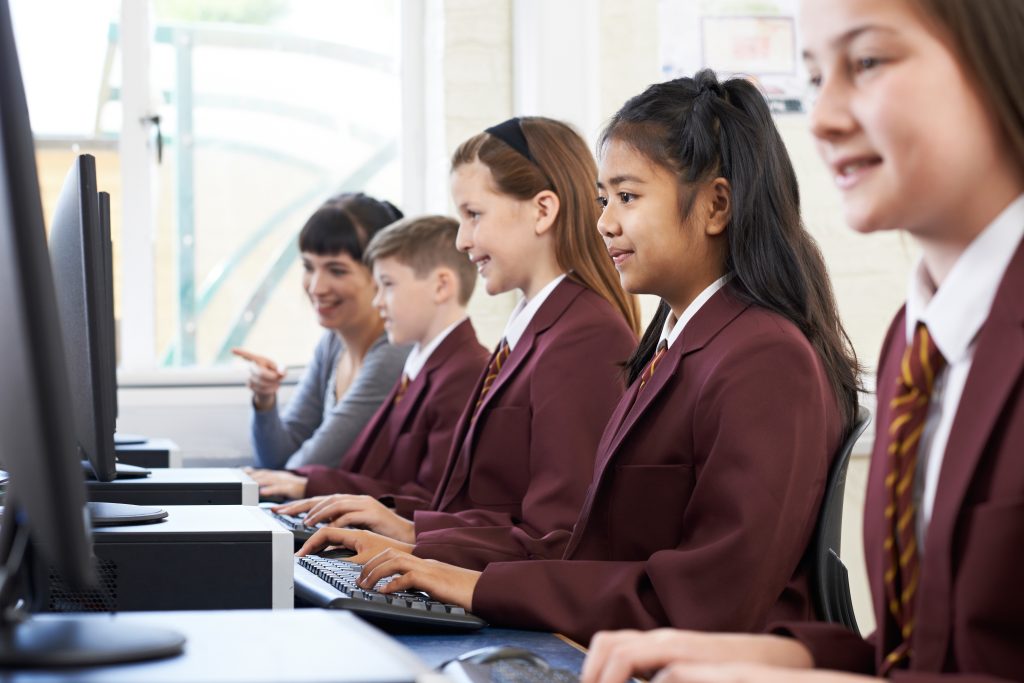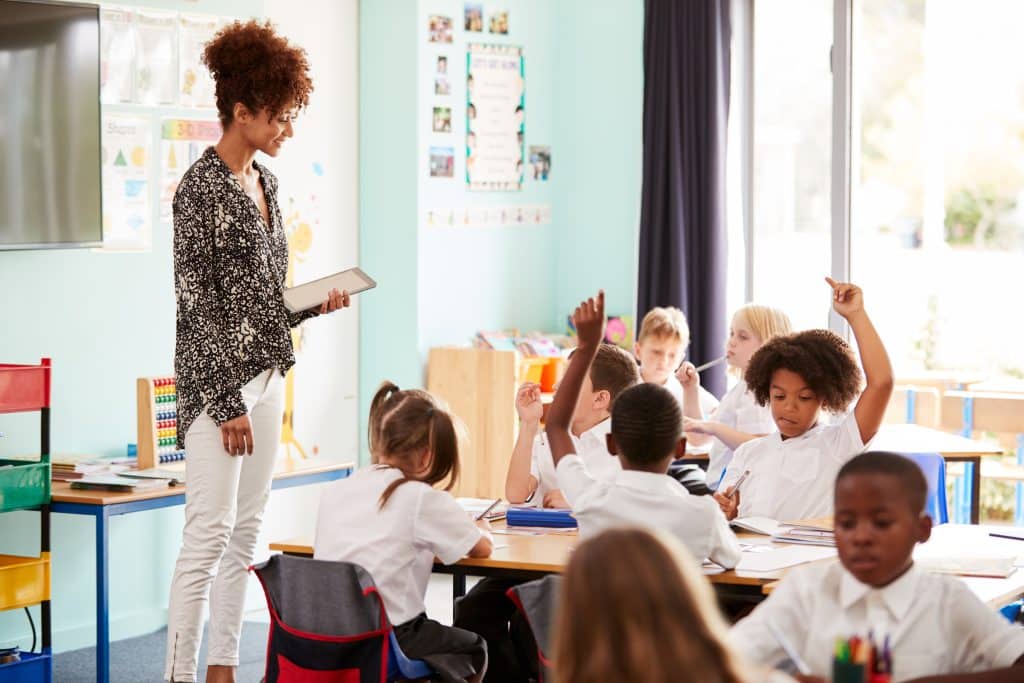Don’t Assume the Suburbs Mean Public School—Weigh Your Options and Run the Numbers for Suburban Private Schools
Yes, private school can be expensive, especially when you have more than one kid in the mix. And, yes, many families move to the suburbs for the A+ public schools—that may even be your primary motivator.
That said, there’s a real reason to consider suburban private schools, and it’s not just the quality of education. By opening your family up to private school options, you’ll likely expand your suburban search and have opportunities to buy into communities that may, otherwise, have fallen off your radar because of lower-ranking public schools.
This option is appealing to a lot of families. Living in less popular suburbs usually means you pay less in property taxes, the overall cost of living is cheaper, and even the initial price of buying a home is lower. The money you save this way can go towards private school tuition – a win/win for many.
Consider this: two towns, two school districts, two different buying experiences with suburban private schools as an option…
Take this scenario as an example. A school district in Long Island is consistently among the top 20 in New York, boasting Blue Ribbon Schools of Excellence and a high rate of Ivy League admissions. Here, the median home sale price is just under $2.1 million.
Right next to it is another town with more urban-like features, like a walkable downtown, multiple transport options, and a beach. However, its schools rank relatively low.
In this second town, the median home price is much lower, at about $477,000. With around $1 million, half the median home in the first suburb, you can get a significantly larger property. For instance, recent searches show available homes ranging from a 7,000-square-foot, seven-bedroom house to a two-acre compound with 39,000 square feet of space. The difference in housing and taxes between the two towns is stark – expect to pay four times more in taxes in the first town compared to the second.
The main concern for many, though, is the quality of schools. The second town’s public schools are lower-ranked, with fewer extracurricular activities and less convenient busing options. Their college matriculation rates and parent ratings fall short compared to the first town. This is where the option of suburban private schools becomes an important consideration for families evaluating these towns.
The alternative: explore suburban private schools!

These communities boast a range of high-quality suburban private schools, encompassing independent institutions, college preparatory programs, boarding school feeders, a Friends Academy, Montessori schools, parochial, STEAM, and language immersion options. Evaluating the benefits of both public and private schooling options in these areas comes down to doing the math and recognizing the value each brings to the table.
Buy in town #1, spend $2.1 million for a three-bedroom, two-bathroom house
Down payment: $420,000
Mortgage: $8,764
Property taxes: $3,063/month
School costs: $0 (two kids, public school)
ANNUAL COSTS, YEAR 1: $561,600
ANNUAL COSTS, YEAR 2: $141,600
Buy in town #2, spend $1.25 million for a six-bedroom, 4 ½-bathroom house with a pool
Down payment: $250,000
Mortgage: $5,097
Property taxes: $625/month
School costs: $50,000 (two kids, private school)
ANNUAL COSTS, YEAR 1: $368,664
ANNUAL COSTS, YEAR 2: $118,664
The financial difference can be striking in the first year of buying your home, even when you have two kids in suburban private schools. By the second year, you could still be saving close to $23,000 with two children in private education, and remember, this includes owning a significantly larger property.
The key takeaway? Crunch the numbers. Don’t just assume that accessing top public schools means paying exorbitant costs or compromising on your ideal home. Equally, a less prestigious public school district shouldn’t automatically be a deal-breaker. Consider everything, including the option of suburban private schools.
Your goal is to explore all possibilities to find the perfect suburb for your family. It might be a place with excellent public schools, or perhaps not. If it’s the latter, carefully evaluate the expenses and lifestyle of choosing a suburban private school.
Some final thoughts on the private versus public debate

Remember, not every child is suited for the traditional public school experience. Observing your three-month-old during tummy time doesn’t reveal their future academic or social paths. When you have several children, predicting their needs years in advance becomes even more challenging.
Moreover, choosing a suburban private school often means gaining an additional community. Although students may come from various areas and towns, the school fosters a sense of community.
It’s not about bedrooms and bathrooms—it’s about the right place to raise your family. Schedule here for your strategy session with our innovative suburbs strategy team. All services are completely free.
